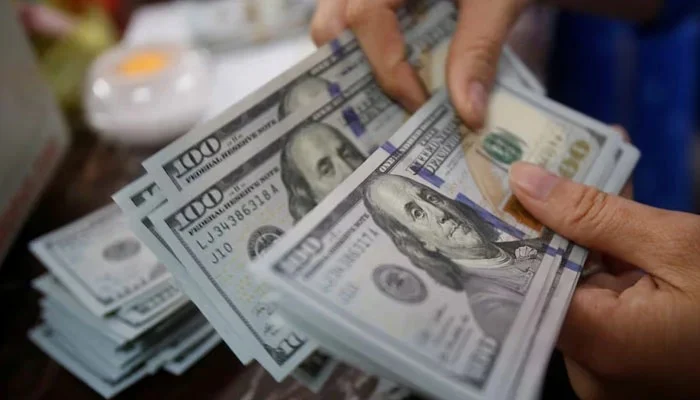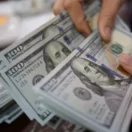Published in oxford university
Leading economists, including Nobel laureate Joseph Stiglitz, Argentina’s Minister of Economy Martin Guzman, as well as academics from Oxford, Yale, Columbia, and UCLA, are calling today for a deep shift in how economists understand the overall economy. According to the new thinking, a series of massive economic shocks have left traditional economic theory in pieces and the old macroeconomic paradigm is on its way out.
Oxford Professor David Vines says, ‘The old model of ‘macroeconomics’ was built for a stable world free from large economic shocks. If we ever lived in such a world, we no longer do.’
“The old model of ‘macroeconomics’ was built for a stable world free from large economic shocks. If we ever lived in such a world, we no longer do”
Professor David Vines
Summarising the Rethinking Macroeconomics project in the Oxford Review of Economic Policy, Oxford economists Professor David Vines and Dr Samuel Wills call for a shift away from the assumptions which have underpinned economic theory for decades – and which do not meet today’s challenges. They argue a more open, more diverse, paradigm is emerging, which is far better equipped to deal with contemporary challenges such as the global financial crisis, climate change and COVID.
Professor Vines and Dr Wills argue that the old macroeconomic paradigm is being replaced by an approach which is less tied to idealised theoretical assumptions, takes real-world data more seriously, and is, therefore, far better suited to dealing with 21st century challenges.
Dr Wills says, ‘This shift [in thinking] breaks with more than a century of macroeconomic thinking and has wide-ranging implications for economic thought and practice.’
“This shift [in thinking] breaks with more than a century of macroeconomic thinking and has wide-ranging implications for economic thought and practice”
Dr Samuel Wills
Professor Vines adds, ‘An economic model that cannot handle serious shocks is like a medical science that does not study major disease outbreaks; it is likely to let us down at the most critical of moments. The old economic model has already failed us badly in the 21st century’.
Since the 2008 global financial crisis, which was not seen coming by most macroeconomists, the field has undergone a difficult decade. Its reputation was not helped by the slow and weak recovery from the 2008 crisis, which most observers now agree was made worse by world-wide austerity policies.
Macroeconomics has been dominated by one core approach for the last two decades: the ‘New Keynesian Dynamic Stochastic General Equilibrium’ (NK-DSGE) model. While this remains the profession’s generally accepted framework, the contributors to this issue of the Oxford Review of Economic Policy argue it is no longer fit for purpose.
According to today’s journal issue, the NK-DSGE model is unsuited to understanding large economic shocks. At the heart of the old model is the assumption that all disturbances are temporary and the economy eventually returns to one stable ‘equilibrium’, in which it continues to grow. This assumption makes it badly unsuited to studying large crises and transitions which see unemployment multiply and financial systems in crisis.
Professor Vines insists, ‘The old core assumption that the economy returns to one equilibrium point is a major diversion from reality. If we want an economics up to the challenges of the twenty first century, it is crucial the discipline understands the possibility of multiple economic equilibria.’
“The old core assumption that the economy returns to one equilibrium point is a major diversion from reality…it is crucial the discipline understands the possibility of multiple economic equilibria”
Professor Vines
The NK-DSGE model is also built on over-idealised foundations. The old model is built on a set of assumptions about how people act in the economy and why: it assumes people are always well informed, rational, and dedicate all their attention and effort towards one particular goal.
Dr Wills maintains, ‘This analytical straight-jacket means the old paradigm refuses to recognise that we all act under uncertainty about the future when we make economic decisions, and that our decisions are therefore always shaped by our best guesses, habits, and rules of thumb.’
Professor Vines and Dr Wills have named the newly-emerging macroeconomic paradigm ‘MEADE’: Multiple Equilibrium and DiversE (in recognition of the Nobel prize-winning economist James Meade). The new approach studies how multiple economic equilibria can arise and uses wide range of different kinds of models to understand what policymakers can do.
Professor Vines says, ‘This new paradigm has far deeper roots in the real world: it stresses the need for models based on detailed empirical understandings of how the economy actually is, rather than how it theoretically should be.
‘Just as doctors only build up a full understanding of how a body is functioning using a whole host of empirically-grounded diagnostic tools, so economists must build up a full understanding of how economies function using a wide range of empirically-grounded tools and models.
‘Placing too much weight on the old, overly idealised model has blinkered macroeconomics; the blinkers are now coming off, and we want to speed this change along.’






